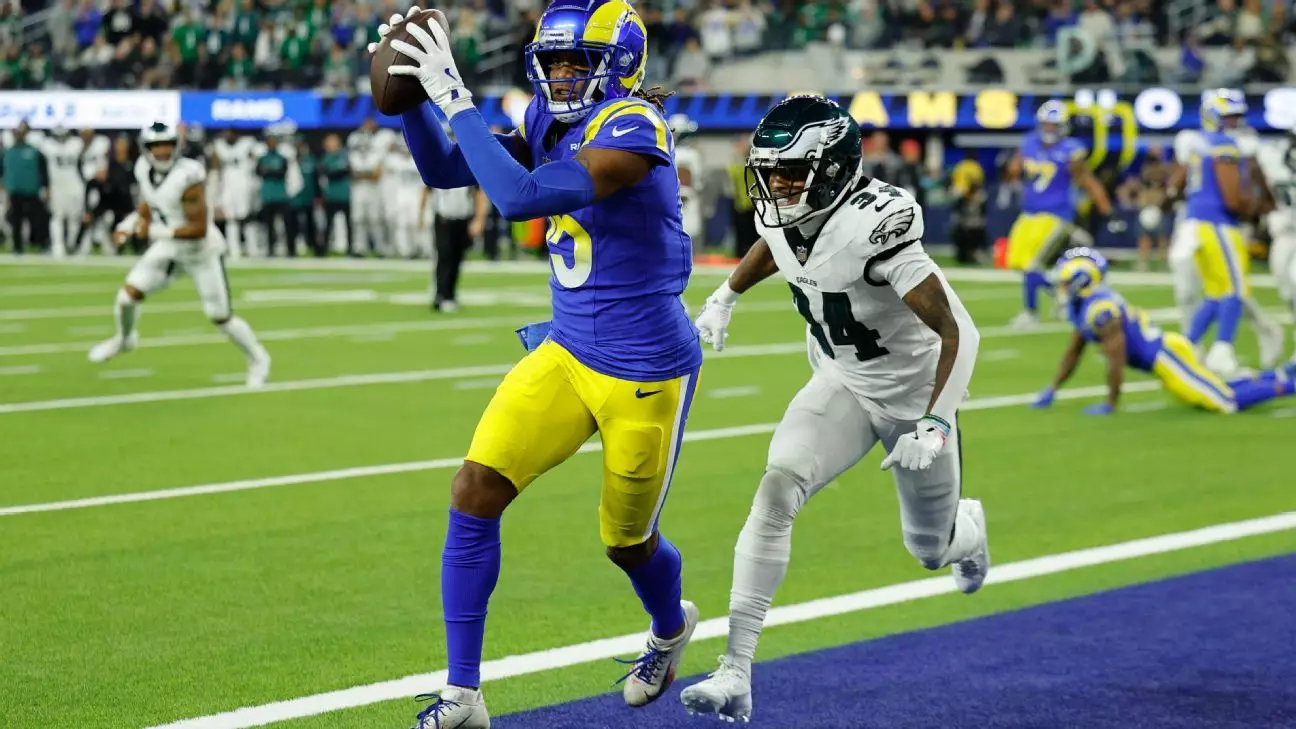Consequences Beyond the Field: The Case of Demarcus Robinson
In the high-stakes world of professional sports, athletes often find themselves balancing the pressures of their careers with their personal lives. This delicate balance can sometimes tip dramatically, leading to incidents that ripple through both their personal and professional spheres. Recently, the arrest of Demarcus Robinson, a wide receiver for the Los Angeles Rams, charged with driving under the influence, brought this complex relationship into sharp focus. Despite his arrest, the Rams have chosen not to suspend him for an upcoming game against the New Orleans Saints, sparking conversations about accountability and team reputation.
The story of Demarcus Robinson is a stark reminder of how quickly fortunes can change in an athlete’s life. Just hours after a game in which he caught a touchdown pass, he was arrested at 5:13 a.m. on charges of reckless driving. Speeding at over 100 miles per hour is more than just a poor decision; it’s a potentially catastrophic lapse in judgment. Fortunately, no injuries resulted from his actions, but this incident still serves as a wake-up call about the volatility and responsibilities that come with being a professional athlete.
The Rams’ head coach, Sean McVay, has taken an understanding stance towards Robinson, choosing not to impose immediate disciplinary action. Instead, McVay has decided to let the legal process play out before making any decisions regarding Robinson’s future with the team. This approach has sparked discussions among fans and commentators about what it means to hold athletes accountable for their actions. Does waiting for legal outcomes send the right message about accountability in sports, or does it risk suggesting that such behaviors are excusable if they don’t lead to immediate harm?
Key Takeaways
- Demarcus Robinson’s arrest highlights the delicate balance between professional success and personal responsibility.
- The Rams’ decision not to suspend Robinson raises questions about accountability in sports.
- This incident presents an opportunity for athletes to learn from mistakes and foster a culture of responsible behavior.
Robinson’s Reflection and Accountability
Following his arrest, Demarcus Robinson publicly acknowledged his mistake and communicated his desire for others to learn from his experience. He emphasized the importance of personal accountability and expressed concern about how such incidents could cast a shadow over a team’s collective achievements. In doing so, Robinson moved beyond mere regret, focusing instead on growth and learning. His willingness to address his misstep candidly reflects an understanding of how one person’s actions can impact a larger group. It underscores the need for responsibility in environments where personal actions are constantly magnified by public scrutiny.

Learning Experiences A Broader Lesson
The case of Demarcus Robinson offers a broader lesson not only for him but for all athletes dealing with fame and temptation. The pressure to uphold a certain image while managing public expectations requires players to align their personal choices with their professional obligations. As Robinson himself noted, this incident could serve as a teachable moment for the NFL community. By confronting the consequences of risky behavior openly, athletes like Robinson can help foster an environment that encourages healthier lifestyle choices and accountability.
As Demarcus Robinson steps onto the field in upcoming games, attention will be on more than just his athletic performance. Observers will be keen to see how he navigates this pivotal moment in his career—whether he can transform this setback into an opportunity for personal development. The potential for growth is present, driven by introspection and how both he and his organization respond to these challenges. Ultimately, this situation highlights the complexities of fame and underscores why embracing responsibility is vital for athletes striving to maintain both personal integrity and team cohesion.

Final Thoughts
The journey of Demarcus Robinson serves as a powerful narrative on the consequences of life beyond the field. It sheds light on how personal decisions can echo through one’s professional life and impact wider communities. For athletes navigating similar paths, his story offers valuable lessons in accountability and personal growth. As fans watch closely to see how Robinson handles this chapter of his career, there’s hope that it will lead to positive changes both within him and across sports organizations as they emphasize responsibility and learning from past mistakes.
Demarcus RobinsonLos Angeles Ramsaccountability in sportsathlete responsibilityprofessional sports challenges


Leave a Reply